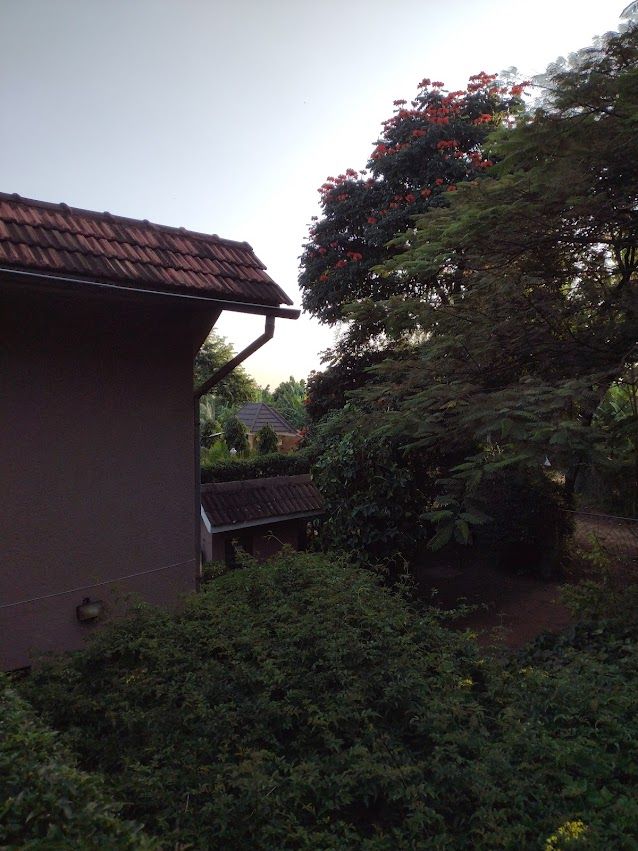
My second sunset in Arusha, Saturday night and I'm all right. Here's why.
The Pentecostal church that popped up too close to people is going full blast, and tonight it's time for headphones and white noise. That didn't dim my enthusiasm for a lovely soft day, food too good to be eaten (well almost) and a good long talk with Eddie the cook and manager of Researcher's Rest. We had to get some supplies, as my apartment has a kitchen and I wanted to do my cooking. A little, at least.
Okay, okay, boil my own water for coffee.
Saga Supporter Penny Nelson fired me a comment on my first post from Arusha. This one is just for Saga Readers, those of you who were asking me to comment on and write about what's going on locally. First, here's Penny's comment:
I have been in a few places that had a similar vibe to what you're talking about in Researcher's Rest. A huge old home on the Navajo reservation that had been turned into a hotel and restaurant. Our table was in the middle of what used to be the living room next to the very old hand built fire place that still kept us warm. The place was heavy with history and the love given it my many over the many years. The sheep station we stayed at in Australia that had a similar feeling about it. I wondered about the lovely ladies who had decorated the walls of the much loved central room. Who were they and where had they gone? This kind of feeling makes the trip so much more meaningful. And that feeling only resides when the locations are taken care of with the love and concern for history that's deserved.
First, this brought up a couple of things. As a journalist and an observer, I've been in my fair share of such houses, and for many reasons I agree completely. These places deserve to be preserved, for they carry a lot of love and artistic affection and sense of place. The docents who wear period dress and take great care to educate us on the occupants and their times are gifts.
Then there's this: in our own country, too many such places are also plantations, buildings built on too many dead bodies and horrible history, run by people for whom there are few kind words indeed when it comes to the subject of slavery or worse.
Just for the sake of being thoughtful, I wanted to share this: all too often these homes have such histories, but does that mean we burn them all down because of it? Would we be better off erasing proof that such places existed?
Does Australia erase its big homes because of how the settlers treated the Aboriginals?
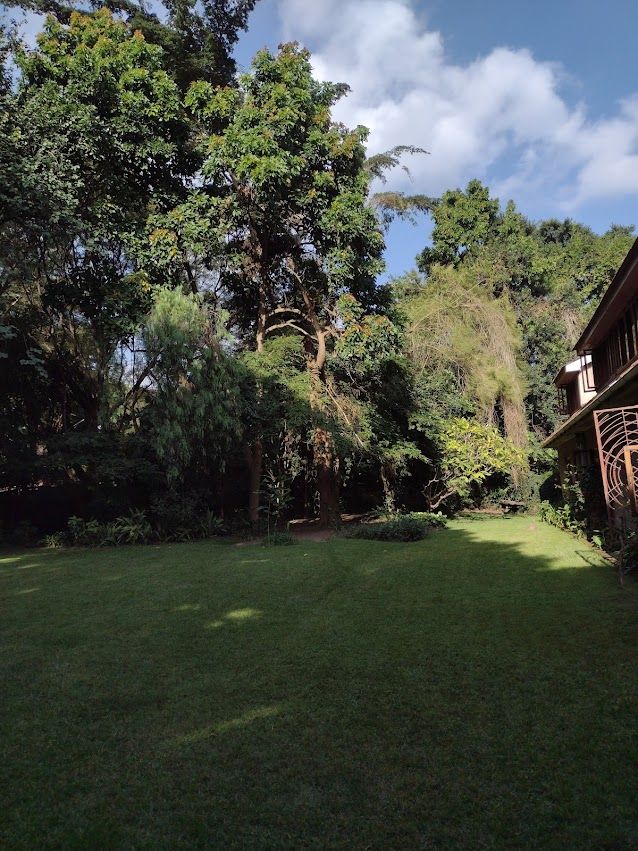
That strikes me as what happened under Mugabe, as he systematically destroyed Zimbabwe's economy and drop kicked all the locally-born whites out, which were the tax base and also the source of much of the country's burgeoning economy at the time. You can see the conundrum. It wasn't just the history that was lost. The entire economy, all the brain trust and knowledge went with it, leaving Zimbabwe one of the poorest nations in the world.
We might want to keep THAT history in mind as we watch our own country succumb to certain influences, with a great many threats to the fundamental institutions which were once our bedrock. But I digress.
Kenya didn't pull a Mugabe to the landowning whites. Part of what happened was that those lands continue to pay the government considerable and desperately-needed taxes, and they still provide employment. White descendants often have very different ideas and have a wholly different kind of commitment to their countries, are Kenyan nationals, and as such are quite valuable to the country.
Quite importantly, their lands also can evolve into conservation properties when their time as cattle ranches is done, which happened with Ol Pejeta, now a world standard for animal conservation and community cooperation. I can't imagine Ol Pejeta would have become what it is today had the colonials not been here, but it's also foolish not to acknowledge the cost.
Interestingly, Nelson Mandela did a superb job of keeping the White brain trust aboard in South Africa, but subsequent years of mismanagement by his successors and the massive influx of desperate folks from Zimbabwe have caused any number of problems that good man couldn't have anticipated. However, South Africa didn't burn down all its history. All of us, as we move forward, have to choose what we pull out of that history to respect, honor, and to not repeat, should we bother to attend to history's lessons.
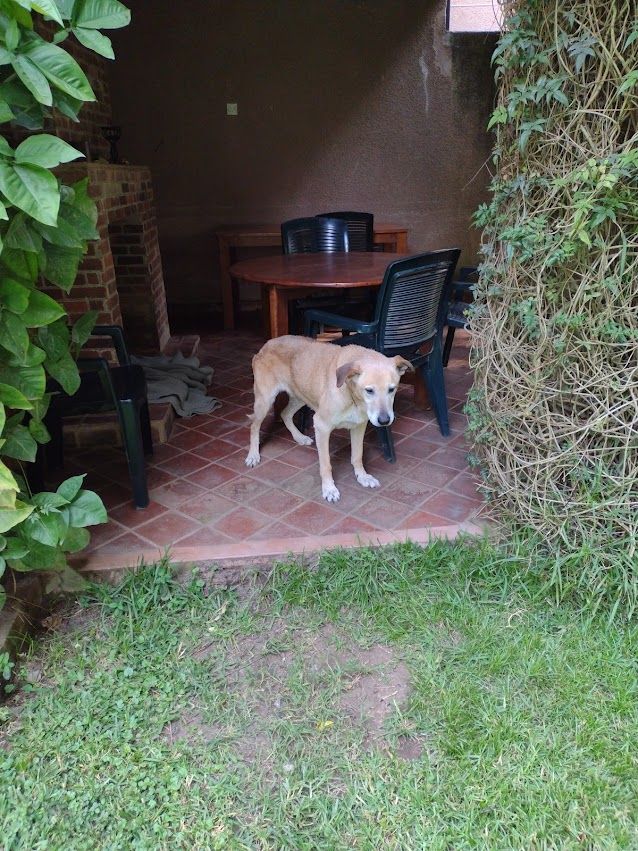
I do think it's fair to view from multiple angles. The beauty of which Penny speaks, for example, which surrounds me here. And I also know the colonialism that raked over the many tribes and nations on this massive continent was a high price. You could argue that a fair few folks also benefitted, whether from learning crafts, skills, getting advanced degrees, all kinds of things which the Western world brought with it along with all the horrors.
When we wipe out history, we also wipe out proof, which is one sure way deniers have their version front and center. Generations later, where are the gas chambers, for example, if all evidence is burned and buried forever?

I'm just musing here. Perhaps what I am offering is that as I stay in this lovely place, I also leave space for the owners, who were apparently quite generous and kind to their staff (Eddie is a perfect example) and sincerely wished to do the right thing, to also have harbored their own prejudices, as do we all. We do the best we can with what we know at any given time.
I think we can sink into the history of grand hold homes without holding our noses, and deeply appreciate what Penny refers to as the lovely ladies who made those houses sing their own songs. I would love to be able to wander some of the grand old estates of the South. Personally, I couldn't but that's just me. For my part I've got people close to me for whom the plantation world was a living reality only one generation back, so I just couldn't. Other places, yes. Like here.
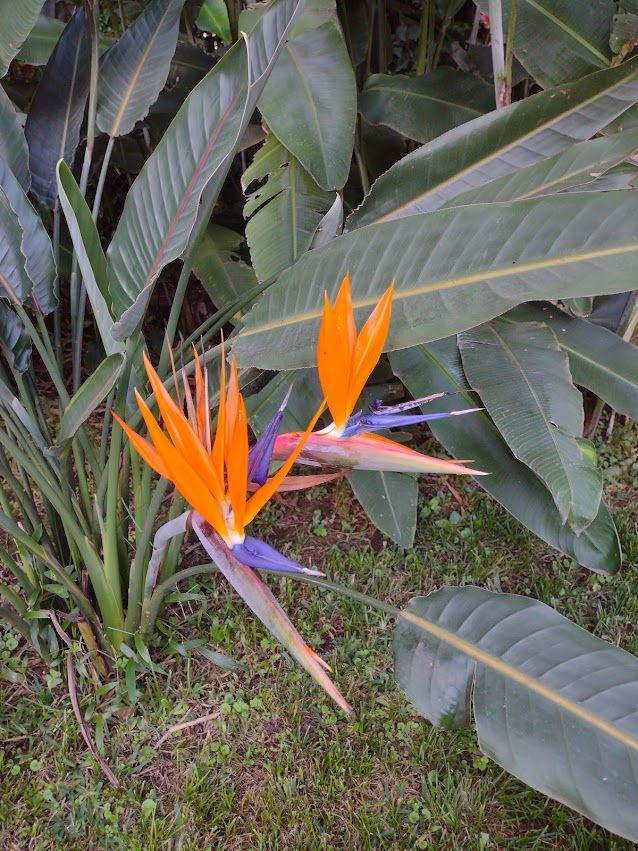
I also believe that it's kinder to history to hold that appreciation in the same space as the cost to the Indigenous folks, the tribes and communities of having explorers and colonialists show up and do what they did. The two can live in the same space, with all the complexities this creates. Emotionally intelligent folks can give credence to multiple truths and realities, while recognizing that doing so is messy. Humanity is messy.
This yard, the dense brush of the trees swathed in the late gold of afternoon, the shouting of kids and their mothers just over the fence, the sounds of African birds speak, for a time at least, when this part of Africa was slowly changing from the colonial presence being dominant to the locals' moving in next door, causing these fine homes to again be isolated. This time, however, it's not coffee plants in all directions. It's a haphazard city, with all the noises and challenges that overpopulation brings.
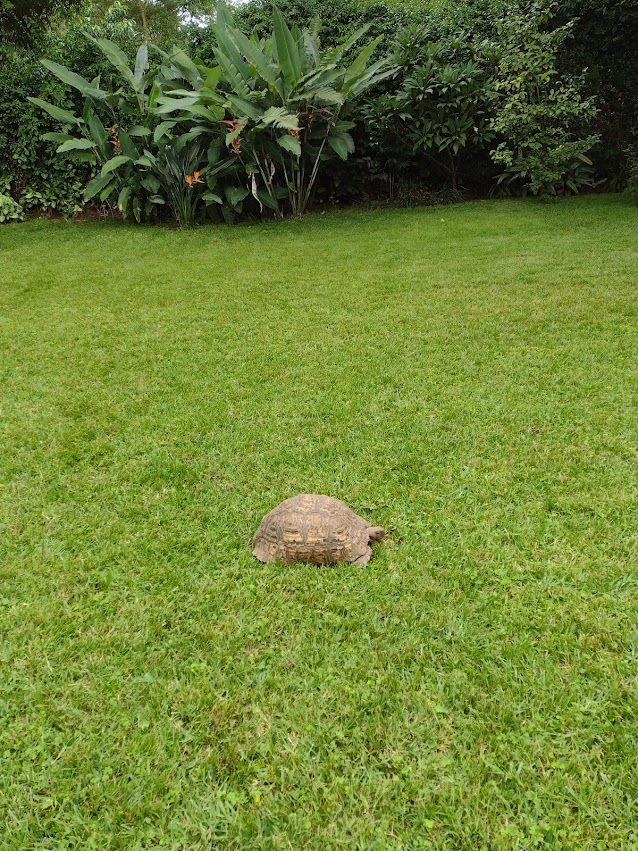
Someday this home might well be lost to the demands of population, one more gem of a home with all its stories pulled apart and distributed like detritus after a ship is broken during a storm. The stories will then live on only through the living, and when they die, all that will remain is what is written, and what is whispered in the stately trees that shade the grass.
If they are not cut down for firewood. Which, should this compound go, they will.
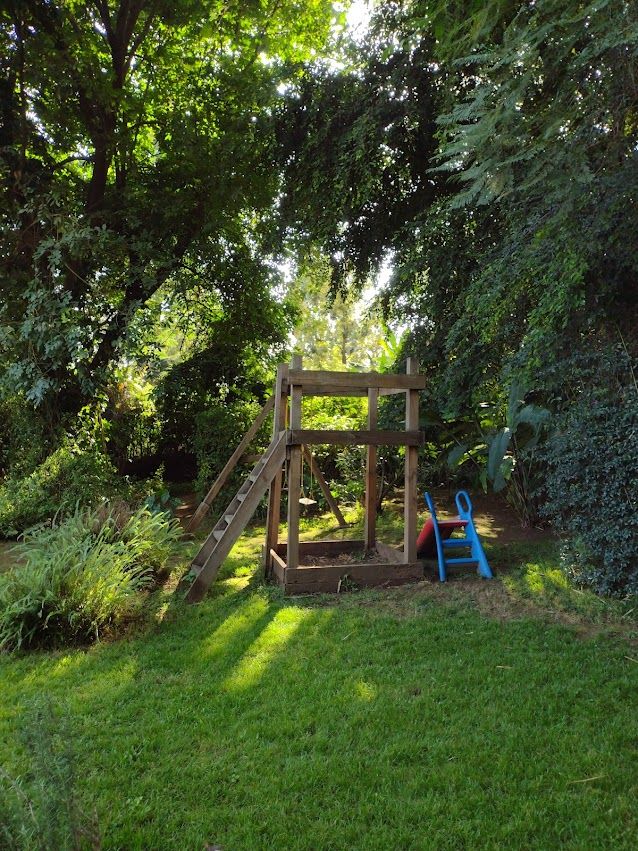
I will write more stories about the culture, as Eddie offered a bunch of observations yesterday which are worth sharing and which a number of you requested. I wished here to set the stage. There is a lot to like about taking a few days before leaping into safari mode.
Thanks as always to Penny for her thoughtful and typically thought-provoking comment.
***
Dear Walkabout Saga Reader:
If my work appeals to you, may I kindly invite you to consider joining those Patreon supporters whose generosity keeps the gas in my tank as it were. Those supporters get to dictate my content calendar, we engage as a community, and this website and its content acts in service to our collective best selves.
You can explore that option here.
However you decide to partake of my writing, thank you.
Comments powered by Talkyard.